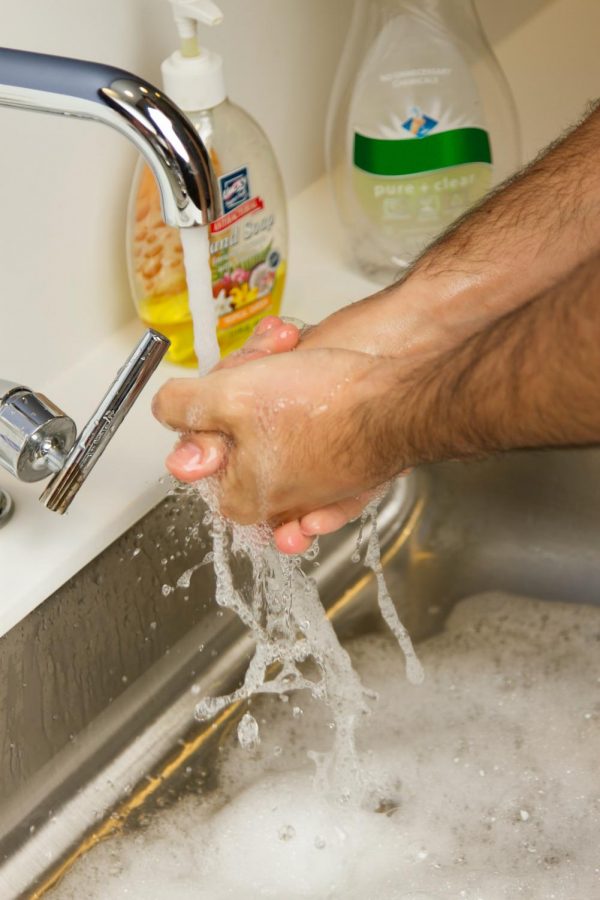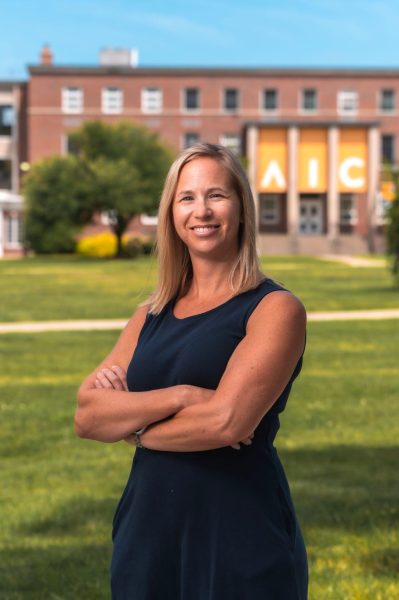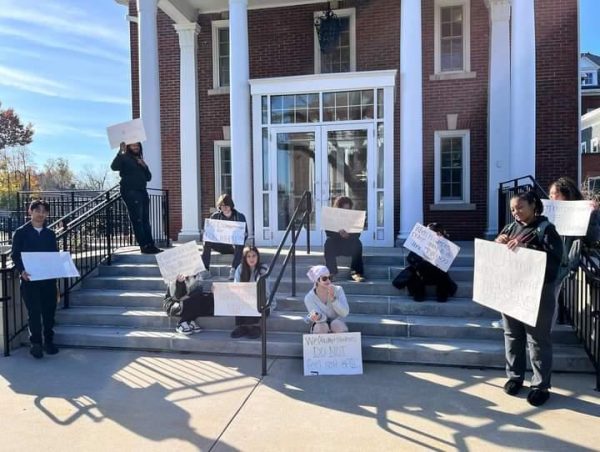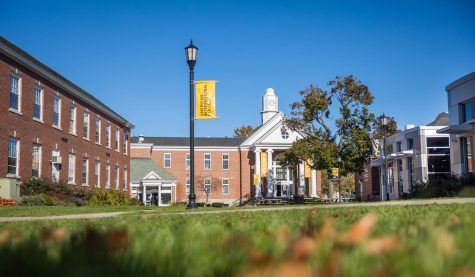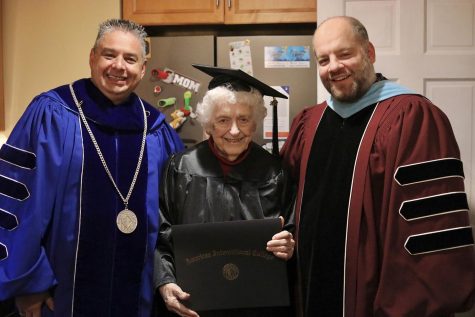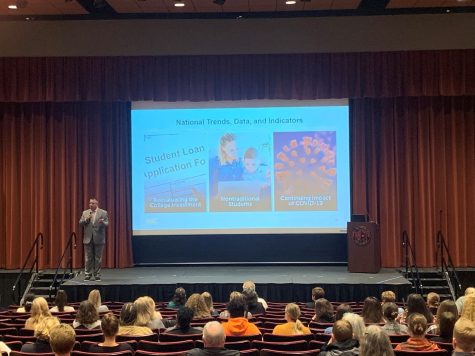Baystate CNA Offers Advice For Combatting COVID-19
April 10, 2020
The main thing that has everyone’s attention around the world right now is the COVID-19 pandemic, also known as the Coronavirus. Doctors, nurses, and medical staff are working around the clock to battle this disease on the front lines. One of my good friends works at Baystate Medical Center as a certified nursing assistant. Kayla Brown provided some insight on what it is like to be in regular contact with COVID-19 patients.
“How would you describe the waiting rooms?” I asked her. “Are people coming in panicking? Or are people calm, trying to stay home etc.?”
Brown replied by saying, “Right now, waiting rooms are empty because they are trying to keep the public out of the hospital. People are coming in more calm right now.”
Brown went on to explain that the situation right now looks a lot different than it did only a few weeks ago. “Before, they would come in over just a small cough or a quick sneeze–which was making the hospital rooms completely full before. Due to Governor Baker’s speeches, people are now staying home. They can leave their homes and go to grocery stores; [they can go] shopping and pick up medicine if needed.” Brown also had some advice about what the public should be doing in response to the virus. “We as a state need to shut down for at least two weeks to make sure that we stop infecting people,” she said. Brown added that we need to “make sure we are washing our hands all the time and [not just] using hand sanitizer.”
“Have you seen any people who have tested positive for the virus?” I asked.
“When it comes to people getting tested for the virus,” Brown said, “it is a real gray area. Social distancing is not working well for a lot of people. We still have people getting sick and thinking they have it. If you take your attention off the news and do some research on the CDC website, you see some shocking things that you probably didn’t know. Anyone can be walking around with [COVID-19], because there are people that show real symptoms, and there are others that show none. So, if you ask me… have I seen or known anyone [who has tested] positive? I can honestly tell you I don’t know at this moment.”
My next question was “What precautions are you and colleagues taking to protect yourself and others from COVID-19?”
Brown stated, “Proper protective equipment is hard to come by right now. Yes, I am protecting myself in the best way possible. There is a huge crisis in the nation right now with what you can wear and can’t wear. Wearing a mask, gown, eye protection, and gloves is the best way I can protect myself.” She reiterated that being vigilant with handwashing is a great protective measure as well: “Always wash, wash, wash, and wash your hands with soap and water.”
Brown also had a message for anyone who is thinking of visiting the hospital if they are exhibiting symptoms–such as coughing or a fever. She said that her “best advice for people coming into the emergency room is do not come. Please protect yourself and stay home. You really do not want to leave your home and expose yourself to this virus.”
Lastly, I asked Brown what hospital staff are doing to treat patients with COVID-19. Brown said that she couldn’t speak about her patients’ health information because she had to protect her their privacy. But she did say, “At this point, all hospitals are the same in my opinion. We are all going through it, and no health care worker is different from the rest. We may do things a little differently, but in hindsight, we’re doing what we need to do to care for our patients safely. The best way to keep yourself healthy and safe is to really stay home and really practice social [distancing] in the right way.” Brown elaborated that practicing real social distancing might involve “Not going to the store because you want to get out of the house, or [because] you think you need fresh air. Maybe you should do some home projects around the house, or maybe some inside spring cleaning. I am not telling people what to do, just suggesting my thoughts. At the end of the day, it is all up to you and how you protect yourself and your families. Thank you for understanding.”
Clearly, medical professionals are taking this disease seriously, and are urging people to do their part to help prevent its spread.




